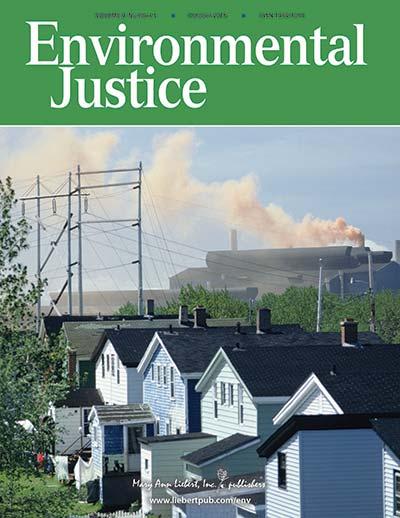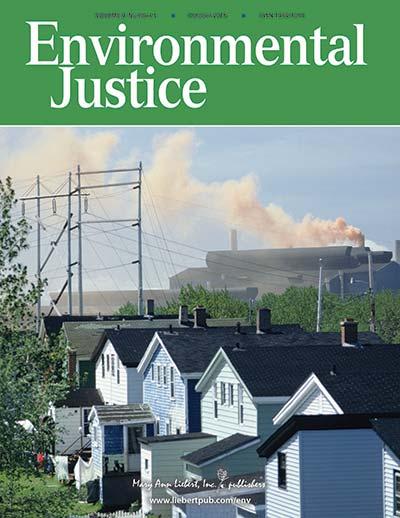
Credit: ©Mary Ann Liebert, Inc., publishers
New Rochelle, NY, October 25, 2016–In cities where homeless persons are viewed as an "environmental contaminant"–a form of pollution, efforts to purge the homeless from the area tend to push them to the fringes of the community and diminish their access to the urban environment and the resources it provides, according to an article published in Environmental Justice, a peer-reviewed journal published by Mary Ann Liebert, Inc. publishers. The article is available free on the Environmental Justice website until November 28, 2016.
In the article, "Treating People Like Pollution: Homelessness and Environmental Injustice," Eric Bonds, PhD and Leslie Martin, PhD, University of Mary Washington, Fredericksburg, VA, focus on the homeless population of Fredericksburg, Virginia, a small city and distant suburb of Washington, DC. The authors provide compelling information and arguments to demonstrate how both official and unofficial movements and exclusionary policies from within communities reduce the visible existence of homeless populations. This important, and too often under-recognized environmental injustice, marginalizes homeless persons, making them feel less safe and unable to access community resources that may provide shelter, meals, and other social services.
"This article is important in elucidating the human costs of environmental indifference to those who we perceive as "others" in our society," says Environmental Justice Editor-in-Chief Sylvia Hood Washington, PhD, MSE, MPH, and a LEED AP, and Sustainability Director, Environmental Health Research Associates, LLC. "The authors make a significant contribution to the field of environmental injustice by including the homeless in our understanding of who suffers from environmental disenfranchisement."
###
About the Journal
Environmental Justice is an authoritative peer-reviewed journal published bimonthly online with Open Access options and in print. The Journal encompasses study and debate on a broad range of environmental inequalities at the local, national, and global level tied to social, health, and economic equity. The Journal features studies that demonstrate the adverse effects on populations that are already at risk for health and environmental hazards, as well as the complicated issues inherent in remediation, funding, relocation of facilities that pose hazardous risk to health. Complete tables of contents and a sample issue may be viewed on the Environmental Justice website.
About the Publisher
Mary Ann Liebert, Inc., publishers is a privately held, fully integrated media company known for establishing authoritative peer-reviewed journals in many promising areas of science, medicine, biomedical research, and law, including Sustainability: The Journal of Record, Environmental Engineering Science, and Ecopsychology. Its biotechnology trade magazine, GEN (Genetic Engineering & Biotechnology News), was the first in its field and is today the industry's most widely read publication worldwide. A complete list of the firm's 80 journals, books, and newsmagazines is available on the Mary Ann Liebert, Inc., publishers website.
Media Contact
Jennifer Gatti
[email protected]
914-740-2100
@LiebertPub
http://www.liebertpub.com





